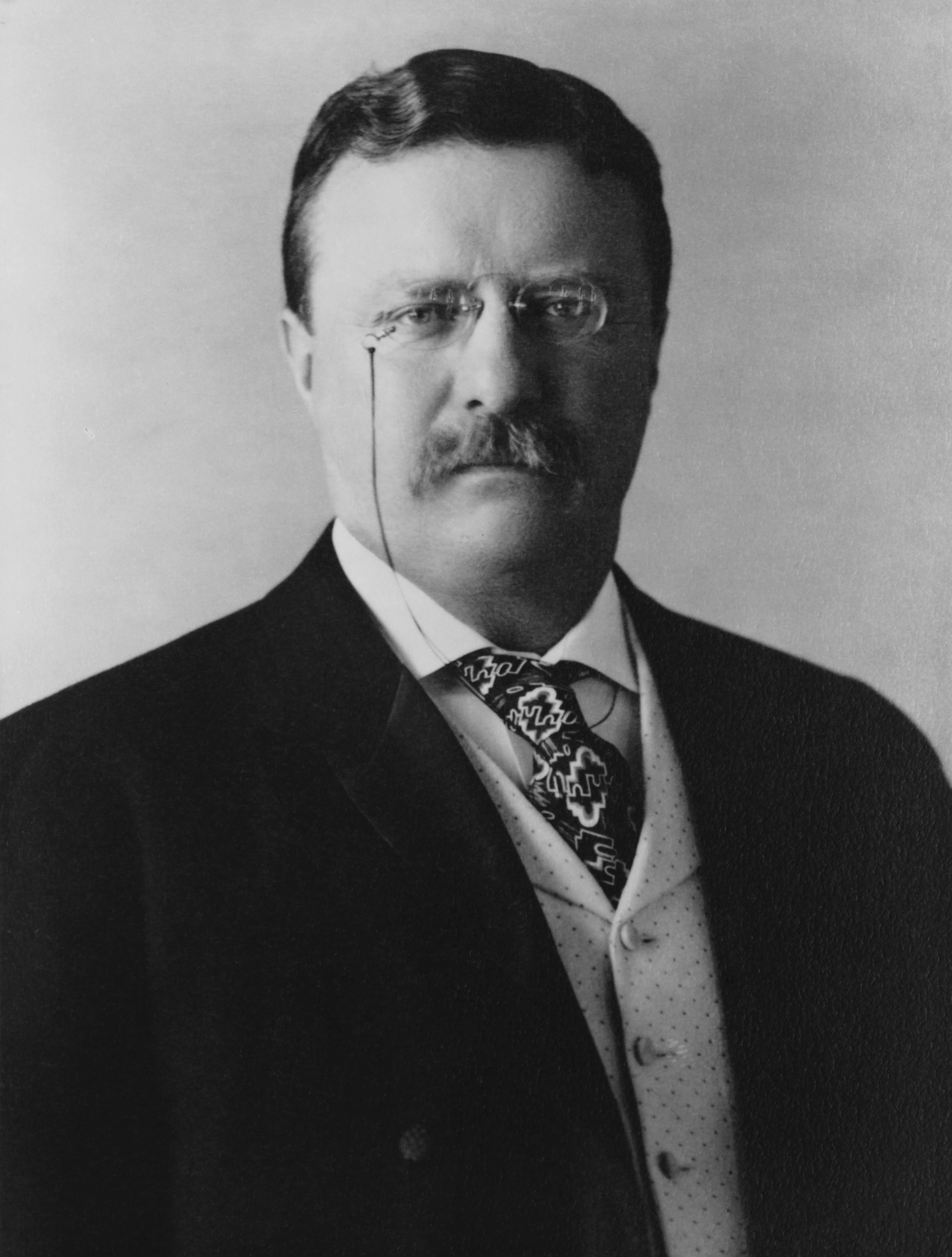Theodore Roosevelt najznámejšie citáty
Theodore Roosevelt citáty a výroky
Theodore Roosevelt: Citáty v angličtine
“Comparison is the thief of joy.”
As quoted in Becoming a Great School (2013) by Cooper, Gustafson and Salah, p. ix
Disputed
Chapter V Applied Idealism http://www.bartleby.com/55/5.html
1910s, Theodore Roosevelt — An Autobiography (1913)
Third State of the Union Address (7 December 1903)
1900s
Speech before the Colorado Live Stock Association, Denver, Colorado (August 29, 1910); in The New Nationalism (1910), p. 52; also inscribed on Cox Corridor II, a first floor House corridor, U.S. Capitol.
1910s
Berkeley, CA http://www.trsite.org/content/pages/speaking-loudly (1911)
1910s
“The government is us; we are the government, you and I.”
Speech http://books.google.com/books?id=kfYEAAAAYAAJ&q=%22The+government+is+us+we+are+the+government+you+and+I%22&pg=PA521#v=onepage at Asheville, North Carolina (9 September 1902)
1900s
Chicago, IL http://www.trsite.org/content/pages/speaking-loudly (17 June 1912)
1910s
“A thorough knowledge of the Bible is worth more than a college education.”
As quoted in Stepping Stones : The Complete Bible Narratives (1941)
Disputed
1910s, Address to the Knights of Columbus (1915)
Kontext: I appeal to history. Among the generals of Washington in the Revolutionary War were Greene, Putnam, and Lee, who were of English descent; Wayne and Sullivan, who were of Irish descent; Marion, who was of French descent; Schuyler, who was of Dutch descent, and Muhlenberg and Herkimer, who were of German descent. But they were all of them Americans and nothing else, just as much as Washington. Carroll of Carrollton was a Catholic; Hancock a Protestant; Jefferson was heterodox from the standpoint of any orthodox creed; but these and all the other signers of the Declaration of Independence stood on an equality of duty and right and liberty, as Americans and nothing else.
Kontext: The line of cleavage drawn on principle and conduct in public affairs is never in any healthy community identical with the line of cleavage between creed and creed or between class and class. On the contrary, where the community life is healthy, these lines of cleavage almost always run nearly at right angles to one another. It is eminently necessary to all of us that we should have able and honest public officials in the nation, in the city, in the state. If we make a serious and resolute effort to get such officials of the right kind, men who shall not only be honest but shall be able and shall take the right view of public questions, we will find as a matter of fact that the men we thus choose will be drawn from the professors of every creed and from among men who do not adhere to any creed.
“I have a perfect horror of words that are not backed up by deeds.”
Oyster Bay, NY http://www.trsite.org/content/pages/speaking-loudly (7 July 1915)
1910s
“Each one must do his part if we wish to show that the nation is worthy of its good fortune.”
1900s, The Strenuous Life: Essays and Addresses (1900), National Duties
Kontext: Exactly as each man, while doing first his duty to his wife and the children within his home, must yet, if he hopes to amount to much, strive mightily in the world outside his home, so our nation, while first of all seeing to its own domestic well-being, must not shrink from playing its part among the great nations without. Our duty may take many forms in the future as it has taken many forms in the past. Nor is it possible to lay down a hard-and-fast rule for all cases. We must ever face the fact of our shifting national needs, of the always-changing opportunities that present themselves. But we may be certain of one thing: whether we wish it or not, we cannot avoid hereafter having duties to do in the face of other nations. All that we can do is to settle whether we shall perform these duties well or ill.
1910s, The Progressives, Past and Present (1910)
1910s, The New Nationalism (1910)
1900s, First Annual Message to Congress (1901)
